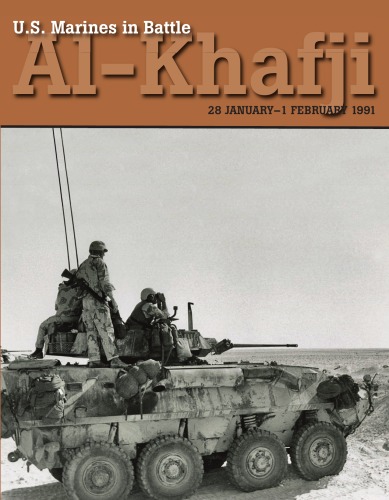

Most ebook files are in PDF format, so you can easily read them using various software such as Foxit Reader or directly on the Google Chrome browser.
Some ebook files are released by publishers in other formats such as .awz, .mobi, .epub, .fb2, etc. You may need to install specific software to read these formats on mobile/PC, such as Calibre.
Please read the tutorial at this link: https://ebookbell.com/faq
We offer FREE conversion to the popular formats you request; however, this may take some time. Therefore, right after payment, please email us, and we will try to provide the service as quickly as possible.
For some exceptional file formats or broken links (if any), please refrain from opening any disputes. Instead, email us first, and we will try to assist within a maximum of 6 hours.
EbookBell Team

0.0
0 reviews
ISBN 10: 1475059809
ISBN 13: 978-1475059809
Author: Paul Westermeyer
In August 1990, Iraqi military forces invaded the neighboring nation of Kuwait. The invasion was part of an expansionist foreign policy that President Saddam Hussein established a decade earlier when he invaded post-revolution Iran. The Iraqi invasion of Iran failed, degenerating into a decade long war of attrition, but Kuwait was an easier target. Kuwait had financed the Iraq-Iran War for Iraq, but refused to forgive the debt, and Iraq accused Kuwait of stealing oil from the Rumalia Oil Field. Much smaller than Iran in terms of population and geography, Kuwait had focused its foreign and defense policies on negotiation and compromise rather than military force; inevitably, the large Iraqi Army quickly overwhelmed the small Kuwaiti armed forces. Inside Kuwait, Iraqi troops began wholesale pillaging as security forces moved to remove all those loyal to the Kuwaiti royal family. Iraq declared that Kuwait was now a province, thus eliminating its debt and adding extensive oil fields to its own. Saddam stationed conscript infantry divisions in Kuwait and began building extensive defenses along the Kuwaiti-Saudi border. While Saddam calculated the military balance between Iraq and Kuwait correctly, he underestimated the willingness of the world community, especially the United States and Great Britain, to intervene on Kuwait’s behalf. His invasion set the stage for a military confrontation that was larger in scope than any similar circumstance since the Cold War. Under President George H.W. Bush, the United States assembled a global coalition of concerned nations, first to defend Saudi Arabia against further Iraqi aggression, and then to eject the Iraqi military from Kuwait. Early in this “Gulf War” American military commanders designated the operation to protect Saudi Arabia “Desert Shield,” and the successive operation to free Kuwait “Desert Storm.” These military operations were massive undertakings, and they highlighted the paradigm shift from superpowers in precarious equilibrium during the Cold War to American global hegemony in the 1990s.
Chapter1 : Introduction
Chapter 2: Content
Chapter 3: Conclusion
Chapter 4: Appendices
Chapter 5: Glossary
Chapter 6: References
Chapter 7: Index
usmc battles in afghanistan
us marines in battle fallujah
us marine battles in afghanistan
us marines in battle
battle of khafji marines
Tags: Paul Westermeyer, US Marines, Al Khafji